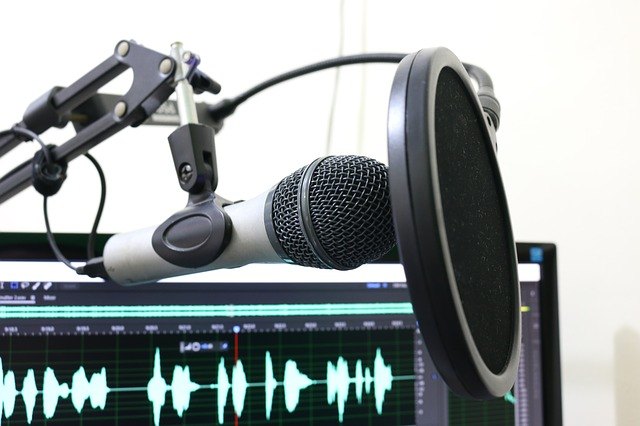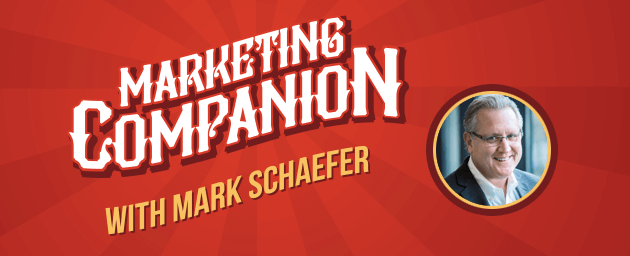By Kerry Gorgone, {grow} Contributing Columnist
Nearly every time I give a presentation on podcasting, someone asks me about music. Typically, they’re already using popular music as their podcast opener and they’re asking me “what they should do.”
My answer is always the same: “Stop using copyrighted music unless you have written permission.”
They usually chuckle at first, forcing me to repeat it. “Seriously, stop using it. You’re opening yourself up to major liability if you don’t.”
Today let’s talk about protecting your podcast by using music the right way.
Face the music
Copyright is a complex issue, and I’ve discussed it on this blog before, but here’s a summary: An artist owns copyright in his or her work as soon as it is “fixed in a tangible medium” (e.g. drawn on a napkin, typed into a Word document and saved, painted onto a canvas, recorded into an audio file, etc.). Whether or not the creator registers the work with the Copyright Office, he or she holds the exclusive right to determine who uses the work and for what.
What this means for podcasters is this: you absolutely cannot use any portion of someone else’s music in your podcast. Not the whole song, not half the song, not ten seconds of the song. Nothing.
There is no “30-second rule” or any other doctrine stating that you can use 30 seconds of a song without penalty, or that X seconds of a song will always be “fair use.” That’s a pervasive urban legend of sorts, and buying into it could prove costly.
Protecting your podcast
I recently tweeted my answer to the podcast music question after another new podcaster messaged me to say that they wanted to use a popular song in their podcast.
I get this question a lot: “I use popular music as my podcast opener. What should I do?”
Here’s what you should do: Stop using popular music as your podcast opener until you have written permission from the person/entity that owns the #copyright. That’s the answer! pic.twitter.com/BRCOYBko9o
— Kerry O’Shea Gorgone (@KerryGorgone) January 4, 2018
Podcaster and marketer Scott Monty replied to my tweet, surprised that people today don’t know how to get “podsafe” music (royalty free music you can legally use in your podcast).
Seriously. It’s 2018. I use @Pond5 for lots of my music needs, and @YouTube now has a great audio library in their Creator Studio: https://t.co/bYUHb3iGMJ
— Scott Monty (@ScottMonty) January 4, 2018
Scott’s right: we should all know better, but it seems many new podcasters don’t realize the potential risk of using copyrighted music, much less know where to find podsafe options. To help, I’ve provided some options here for sourcing music legally.
Get permission from an independent artist.
If you know any musicians (and many of us do), you could ask them for permission to use one of their songs in your podcast, provided you give them credit and a link back to their online catalog. I did this myself, using one of Noam Weinstein’s songs as my podcast opener for Marketing Smarts.
The key is to make sure you obtain written permission from the person or entity that owns copyright—not always as easy as it sounds once a label or publisher is involved. Still, if you know an indie artist whose music you love, there’s no harm in asking permission. Just don’t start using their music until you get the okay!
Use a royalty-free music service.
Scott Monty uses Pond5, but there are many online libraries you can use to source royalty-free music for your podcast. Here are a few more for you to check out:
Storyblocks
Epidemic Sound
Opuzz.com
There are free options, as well, including the Free Music Archive and YouTube’s Creator Studio Library. Just take care to abide by the requirements set forth in the license (usually a Creative Commons license), such as providing the artist with credit / attribution.
Get your own sonic branding
If you’re in podcasting to promote your business or to boost your profile as a speaker/author/consultant, you might consider commissioning your own “sonic logo.” If you’re not familiar with the term “sonic branding,” you can check out the interview I did with David Meerman Scott and Juanito Pascual on the subject for MarketingProfs.
One example is the sound you hear that means “Intel Inside”—a sound or short composition that people instantly associate with you and your brand.
Once you’re beyond the exploratory stage and podcasting is part of your marketing mix, you might consider investing in your own unique sonic logo or theme song. It will help you to stand out in an increasingly crowded marketplace, and you’ll know without a doubt that you (and no one else) has the right to use that music.
Facing copyright realities can be deflating if you’ve got your heart set on a particular song, but the reality is that most podcasts don’t make enough money to pay the huge licensing fees required for popular music. One episode of the AMC series “Mad Men,” for example, featured the Beatles song “Tomorrow Never Knows.” Licensing the song for that single use reportedly cost $250,000.
With the many talented artists creating royalty free music today, you should be able to find something that evokes a similar mood or feeling to the popular song you’ve got in mind, and digging around is well worth the effort. A copyright infringement case could easily cost you hundreds of thousand of dollars in legal fees and settlement costs, and even more if you lose after a trial.
Go forth and podcast: just be smart about selecting podsafe music!
Kerry O’Shea Gorgone is a writer, lawyer, speaker and educator. She’s also Director of Product Strategy, Training, at MarketingProfs. Kerry hosts the weekly Marketing Smarts podcast. Find Kerry on Twitter.




